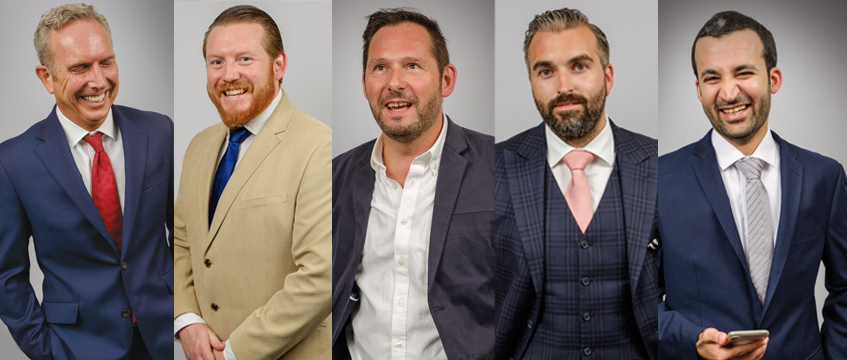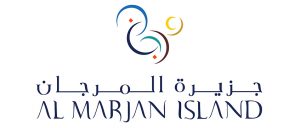We are used to Middle Eastern investment flowing into the UK; less so when it comes to capital flows in the opposite direction. But it’s happening and may be about to step up.
Paul Marsh, chief executive of Holistic Capital, who has helped UK investors and developers tap into Middle Eastern capital, says UK investors who travel to the United Arab Emirates seeking backers often have their eyes opened to investment and development opportunities in the region.
“Once you get to the Middle East, you realise what the real picture is – as opposed to a third-hand version of what reality is,” he says. “You see how easy it is to set up a company. The tax incentives are well known and once you get to the scale of a large project you’re dealing with institutional, government-grade organisations. The professionalism within those organisations is a very welcome experience for any investor.”
Investment from India and Iran has increased, and in the past three years investor interest – primarily through development – has grown from Germany and Ireland. Could more UK investor developers be next to move in?
Two companies that have made the leap are Select Property Group, which has been active in the United Arab Emirates since 2004, and Magna Group, a more recent entrant and a business best known for commuter-belt residential in the UK.
“Over the past four years we have successfully built a primarily residential and mixed-use development company based out of London, focusing on community-built housing stock,” says Magna chief executive Chris Madelin.
Ambition
However, a combination of domestic frustration and global ambition led Magna to look overseas.
“For us, moving out to the UAE seems like a good option,” he says. “We have really found dealing with the people out there so far very beneficial and I think more investors will follow suit. The set-up of freezone companies is simple. There are a lot of tax incentives there as well. And it’s a much more proactive place to do business.”
Select began in Dubai, though it is now active in the UK through brands such as Affinity Living, Vita Student and CitySuites. It has grown in the UAE, too, including on Al Marjan Island in Ras Al Khaimah, where it has been active for a decade developing 1,352 beachfront flats.
Select managing director Adam Price expects others to follow suit. “Investors are now more sophisticated and they are starting to look toward better value for money and/or opportunities that are at the beginning of their lifecycle,” he says. “So we have seen a real interest in Ras Al Khaimah from UK investors over the past six to 12 months. I think they feel it gives them the opportunity to get in very early.”
High returns
Abdullah Al Abdooli, managing director of Al Marjan Island, says it is the combination of political stability and high returns that draws investors.
“The returns we would usually offer are 16% on their hospitality assets and 40-60% on their residential product. These returns attract people.
“We have to ensure they are successful in their own business and that’s our responsibility as a master developer. This is the key element when you deal with foreign direct investment. Investors want to feel like they are at home – and when they feel safe and protected, they will invest more. There is nothing like repeat customers.”
Public authorities would work with investors to provide comfort. “We see that the relationship between the government and investors and the markets as well is very dynamic. UK developers are really looking at the region. We have more than 120,000 UK residents over there. We have more than 5,000 UK companies.”
Madelin agrees. “It makes our investors feel much more comfortable when we say to them: ‘Look, we are developing in this really heavily incentivised, up-and-coming Emirate that’s pushing a lot towards tourism. Ras Al Khaimah Tourism Development Authority has been fantastic in the exposure of Ras Al Khaimah,” he says.
“It is great for an investor to see that, and for us to be able to say we have got a great emirate we are dealing with, we have got a proactive master developer and we have got pretty much a plot of land which you can plug and play and set up and go.
“Regulations, planning processes and policies are much more transparent, too. And for investors making a very decent cash-on-cash return or a long-term asset play where they are going to have fantastic yield and capital growth, it really is a good opportunity.”
Managing the risks
There are risks, says Ian Albert, regional director for the Middle East for Colliers International, but they are manageable.
“It’s about reputation,” he says. “If you put money in their country, they want you to be sitting in the coffee shop in London saying ‘I came out with a good return and I got my money out, no problem’. But, as always, when you put money into a development, there’s development risk.
“In terms of key issues: Is it stable enough? What’s my currency risk? What’s my political risk? Can I get my cash out when I need to? It’s yes, yes, yes and yes.”
But there is a potential downside to the considerable planning and use class flexibility on offer.
“Sometimes that leads to a lack of transparency so you don’t know what your neighbour is doing,” Albert acknowledges. “And so therefore that can be the risk. We have seen that particularly in Dubai, where a lot of the stock that came to the market was the same type. You then had a flood of a certain type of residential stock and that has depressed prices.
“The flipside to it is that the reaction time is actually pretty quick. We had an overinflated market in Dubai about three or four years ago. So what did the government do? It increased transaction costs. It went to the central bank and said ‘OK, we need to change the mortgage arrangements’ and that just took the heat out of the market. What we have now are slightly different supply issues but again the government will manage supply.”
Main pic, left to right: Ian Albert, Colliers International; Adam Price, Select; Paul Marsh, Holistic Capital; Chris Madelin, Magna; Abdullah Al Abdooli, Al Marjan Island.
To send feedback, e-mail damian.wild@egi.co.uk or tweet @DamianWild or @estatesgazette












